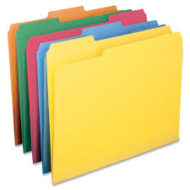I stumbled upon a problem where I wanted to copy a WCF response and share it with someone, sounds easy enough but when you want to whole hierarchy of an objects properties in a clear view it can get tricky. Just like the WCF Test Client I want to get all properties and copy them but you can’t do that from the WCF Test Client unfortunately. So the best way I found is to utilize the ObjectDumper class we will create here.
So let’s say you have a bunch of classes like this
namespace MyNamespace
{
public class User
{
public string FirstName { get; set; }
public string LastName { get; set; }
public Address Address { get; set; }
public IList<Hobby> Hobbies { get; set; }
}
public class Hobby
{
public string Name { get; set; }
}
public class Address
{
public string Street { get; set; }
public int ZipCode { get; set; }
public string City { get; set; }
}
}
Then you’ll get a text like this basicly descripting the object
{MyNamespace.User}
FirstName: "Arnold"
LastName: "Schwarzenegger"
Address: { }
{MyNamespace.Address}
Street: "6834 Hollywood Blvd"
ZipCode: 90028
City: "Hollywood"
Hobbies: ...
{MyNamespace.Hobby}
Name: "body building"
You will get “…” telling that it is a list-object, otherwise simply the the object { } characters indicating it is indeed a single object, then it says what class it is.
The code you need:
using System;
using System.Collections;
using System.Collections.Generic;
using System.Reflection;
using System.Text;
public class ObjectDumper
{
private int _level;
private readonly int _indentSize;
private readonly StringBuilder _stringBuilder;
private readonly List<int> _hashListOfFoundElements;
private ObjectDumper(int indentSize)
{
_indentSize = indentSize;
_stringBuilder = new StringBuilder();
_hashListOfFoundElements = new List<int>();
}
public static string Dump(object element)
{
return Dump(element, 2);
}
public static string Dump(object element, int indentSize)
{
var instance = new ObjectDumper(indentSize);
return instance.DumpElement(element);
}
private string DumpElement(object element)
{
if (element == null || element is ValueType || element is string)
{
Write(FormatValue(element));
}
else
{
var objectType = element.GetType();
if (!typeof(IEnumerable).IsAssignableFrom(objectType))
{
Write("{{{0}}}", objectType.FullName);
_hashListOfFoundElements.Add(element.GetHashCode());
_level++;
}
var enumerableElement = element as IEnumerable;
if (enumerableElement != null)
{
foreach (object item in enumerableElement)
{
if (item is IEnumerable && !(item is string))
{
_level++;
DumpElement(item);
_level--;
}
else
{
if (!AlreadyTouched(item))
DumpElement(item);
else
Write("{{{0}}} <-- bidirectional reference found", item.GetType().FullName);
}
}
}
else
{
MemberInfo[] members = element.GetType().GetMembers(BindingFlags.Public | BindingFlags.Instance);
foreach (var memberInfo in members)
{
var fieldInfo = memberInfo as FieldInfo;
var propertyInfo = memberInfo as PropertyInfo;
if (fieldInfo == null && propertyInfo == null)
continue;
var type = fieldInfo != null ? fieldInfo.FieldType : propertyInfo.PropertyType;
object value = fieldInfo != null
? fieldInfo.GetValue(element)
: propertyInfo.GetValue(element, null);
if (type.IsValueType || type == typeof(string))
{
Write("{0}: {1}", memberInfo.Name, FormatValue(value));
}
else
{
var isEnumerable = typeof(IEnumerable).IsAssignableFrom(type);
Write("{0}: {1}", memberInfo.Name, isEnumerable ? "..." : "{ }");
var alreadyTouched = !isEnumerable && AlreadyTouched(value);
_level++;
if (!alreadyTouched)
DumpElement(value);
else
Write("{{{0}}} <-- bidirectional reference found", value.GetType().FullName);
_level--;
}
}
}
if (!typeof(IEnumerable).IsAssignableFrom(objectType))
{
_level--;
}
}
return _stringBuilder.ToString();
}
private bool AlreadyTouched(object value)
{
if (value == null)
return false;
var hash = value.GetHashCode();
for (var i = 0; i < _hashListOfFoundElements.Count; i++)
{
if (_hashListOfFoundElements[i] == hash)
return true;
}
return false;
}
private void Write(string value, params object[] args)
{
var space = new string(' ', _level * _indentSize);
if (args != null)
value = string.Format(value, args);
_stringBuilder.AppendLine(space + value);
}
private string FormatValue(object o)
{
if (o == null)
return ("null");
if (o is DateTime)
return (((DateTime)o).ToShortDateString());
if (o is string)
return string.Format("\"{0}\"", o);
if (o is char && (char)o == '\0')
return string.Empty;
if (o is ValueType)
return (o.ToString());
if (o is IEnumerable)
return ("...");
return ("{ }");
}
}
Usage
var dump = ObjectDumper.Dump(user);
Credit goes to ms007 for finishing this great method. So imagine you have a User object which contains a bunch of properties just like above, you will then pass the object into the Dump method then what you get is a string which describes the object structure, and with this I like to save into a text file since you’ll have \r and \n characters for tab and line breaks. Note that you will need to import System.IO to use the File methods.
var dump = ObjectDumper.Dump(proj);
// Create a file to write to
string createText = dump;
File.WriteAllText("C:\\thing.txt", createText);
And there you go, now you have saved a text file of the object structure and their values in your C disk drive called thing.
